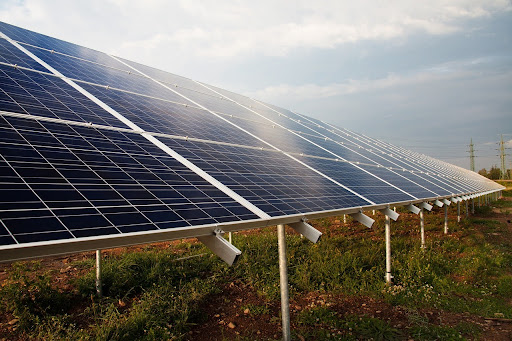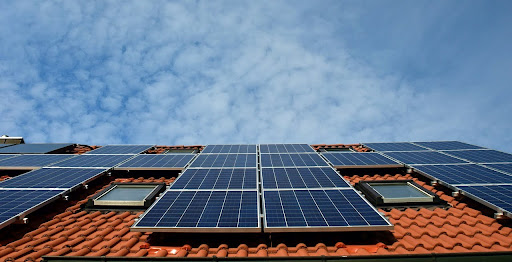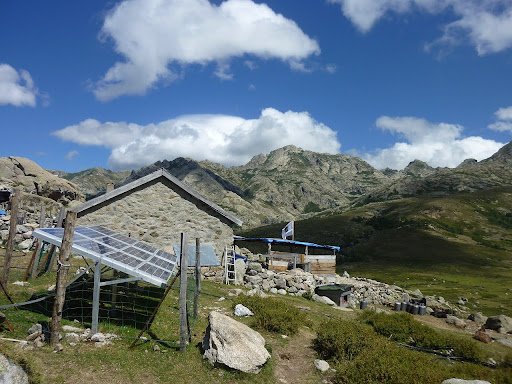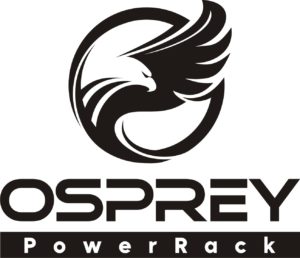Best Solar Panels For Snow: Ground Mount vs Rooftop Compared
Key Takeaways
- Snow can reduce solar panel efficiency by blocking sunlight.
- Ground-mounted solar panels offer easier maintenance and snow removal.
- Rooftop solar panels are space-efficient and generally cheaper to install. Panels with slick surfaces can shed snow more quickly.
- Nuance Energy’s Osprey PowerRACK® system uses innovative earth anchor technology and can be installed quickly using handheld tools.
Solar Panels for Snowy Climates
Snow can cover solar panels, blocking sunlight and significantly reducing energy generation – in snowy regions, solar panel efficiency can drop by up to 30% during winter months. In addition, the weight of snow can cause structural damage to the panels if not properly managed. Therefore, it’s important to choose solar panels that can withstand these conditions while maintaining efficiency.
Most importantly, in regions where snow is prevalent, the angle and orientation of the solar panels play a critical role. Proper angling helps snow slide off the panels more easily, ensuring they remain exposed to sunlight. Therefore, selecting the right type of solar panel system and installation method is essential for maximizing energy production in snowy climates.
Balancing Durability and Efficiency
When choosing solar panels for snowy climates, it’s important to balance durability and efficiency – you want panels that can withstand harsh weather conditions while still producing optimal energy – this means looking for panels with strong frames and high efficiency ratings.
Besides that, consider the maintenance requirements. Panels that are easier to clean and maintain will ensure that snow removal is quick and efficient.

Ground-mounted solar panels allow for easier maintenance, snow removal, and flexible positioning.
| Nuance Energy is your superior solution for Ground Mount solar. Our patented foundation technology Osprey PowerRACK® allows for rapid installation using only handheld tools, significantly reducing both time and costs compared to traditional racking systems. This cutting-edge technology works for residential and commercial installations, and Nuance Energy empowers solar installers to take back control of their installation schedules, control project COGS, gain market share, increase the speed of installation, and reduce the cost of labor. In contrast, a traditional ground mount is much more unpredictable, slower, and costly.
Find out how Nuance Energy can accelerate your solar projects with the Osprey PowerRACK® line, and boost your profitability. Contact us today to discuss our innovative ground-mount solutions. |
Advantages of Ground-Mounted Solar Panels
Accessibility for Maintenance
Ground-mounted solar panels are easier to access for maintenance and snow removal. This means you can clear snow off the panels more quickly, ensuring they remain exposed to sunlight and continue to produce energy efficiently.
Optimal Panel Alignment
With ground-mounted systems, you have more flexibility in how you position the panels. You can adjust the angle and orientation to maximize sunlight exposure and minimize snow accumulation. This is particularly beneficial in regions with heavy snowfall, as it helps keep the panels clear and functioning optimally.
Easy Snow Removal
Ground-mounted panels are easier to clear of snow, which is a significant advantage in snowy climates. You can use simple tools to brush off the snow without the need for specialized equipment or professional services. This ensures that your panels remain efficient and continue to produce energy even during the winter months.
Disadvantages of Ground-Mounted Solar Panels
Space Requirements
One of the main drawbacks of ground-mounted solar panels is that they need a significant amount of land, which may not be feasible for all homeowners.
- Ground-mounted systems need more space compared to rooftop systems.
- They may not be suitable for smaller properties or urban areas with limited land availability.
- Installing ground-mounted panels may require additional permitting and zoning approvals.
These factors can make ground-mounted systems less practical for some homeowners, despite their benefits in snowy climates.
Higher Installation Costs
Ground-mounted solar panels typically come with higher installation costs compared to rooftop systems, mainly due to the need for additional materials and labor. Ground-mounted systems require supports and racking structures to elevate the panels off the ground. These components add to the overall expense, making the initial investment higher.
Moreover, the installation process is often more complex, requiring specialized equipment and expertise. The increased complexity can lead to longer installation times and higher labor costs. As a result, homeowners should carefully weigh these costs against the potential benefits, particularly in snowy regions where ground-mounted panels may offer greater efficiency.
Alternatively, homeowners can also opt for innovative systems like Nuance Energy’s Osprey PowerRACK®. Its adjustable legs easily adapt to snowy and uneven terrains, allowing quick assembly by general labor. A 6kW system can be installed in under an hour, making it a fast and efficient solution for winter installations.
Permitting and Aesthetics
Installing ground-mounted solar panels often involves more extensive permitting processes compared to rooftop installations. Since they occupy additional land space, ground-mounted systems may require zoning approvals and environmental assessments.
Aesthetically, ground-mounted panels are more intrusive – they occupy visible space on your property, which may not be ideal for all homeowners. While some may appreciate the accessibility and efficiency benefits, others may find the visual impact undesirable.

Rooftop solar panels are a space-efficient and cost-effective option in snowy regions.
Advantages of Rooftop Solar Panels
Space Efficiency
One of the most significant advantages of rooftop solar panels is their space efficiency. They utilize the existing roof space, allowing homeowners to generate solar energy without taking up additional land. This is particularly beneficial in urban areas or for those with limited property space.
Rooftop panels are installed on the roof, leaving the ground space free for other uses. This can be an important consideration for homeowners who want to maintain a garden or other outdoor amenities.
Lower Installation Costs
- Rooftop installations generally require less racking and support materials.
- Labor costs are often lower due to the simpler installation process.
- Overall, the initial investment for rooftop systems is more affordable.
With lower upfront expenses, rooftop systems offer a cost-effective way to harness solar energy. However, it’s important to consider the long-term maintenance requirements and potential efficiency losses due to snow accumulation.
Ease of Permitting
Rooftop solar panels often face fewer permitting hurdles compared to ground-mounted systems. Since they are installed on existing structures, they are less likely to require additional zoning or environmental approvals. This can simplify the installation process and reduce the time needed to begin generating solar energy.
Permitting is an essential consideration for any solar installation. By choosing rooftop panels, homeowners can expedite the process and start benefiting from solar energy more quickly.
Disadvantages of Rooftop Solar Panels
A Difficult Snow Removal Process
One of the main challenges with rooftop solar panels in snowy climates is difficulty removing snow. Since they are installed at a higher elevation, accessing the panels for snow removal can be challenging and may require professional services.
Snow accumulation on rooftop panels can block sunlight, reducing energy production – so regular snow removal is essential to maintain efficiency. However, the difficulty in accessing the panels can make this task more complicated and time-consuming.
Potential Shading Issues
Rooftop solar panels may be more susceptible to shading issues, particularly if the roof has obstructions such as chimneys or dormers. Shading can significantly reduce the efficiency of solar panels by blocking sunlight and decreasing energy production. It’s important to carefully assess the roof’s layout and potential shading sources before installing rooftop panels.
Maintenance Challenges
Accessing the roof for cleaning and maintenance requires additional safety precautions and equipment, which can increase the time and cost involved.
Comparing Ground Mount vs Rooftop Systems for Snow

Ground mount systems allow easy access for upkeep and maintenance in cold regions.
Efficiency in Snowy Conditions
Ground-mounted panels generally offer better efficiency in snow because they are easier to clean. Their accessibility allows for quick snow removal, ensuring that the panels remain exposed to sunlight. Additionally, ground-mounted systems can be adjusted to optimize the angle for snow shedding.
Rooftop panels, while more challenging to clear, can still be effective if installed with a steep angle to encourage snow to slide off. However, the difficulty in accessing the roof for snow removal can lead to prolonged periods of reduced efficiency. Homeowners may need to invest in professional snow removal services to ensure their rooftop panels remain productive during snowy conditions.
Cost Implications
Ground-mounted systems typically have higher installation costs due to the need for additional materials, such as racking structures and supports. The labor involved in setting up these systems also tends to be more intensive, further increasing the cost.
Non-traditional ground mounts like Nuance Energy’s Osprey PowerRACK® are a more efficient alternative that can allow for easy, single-day installations without the need for time-consuming geotechnical reports or intense labor.
Similarly, rooftop panels also have lower installation costs. They make use of existing roof space, reducing the need for additional materials and labor.
Long-term Benefits
Both ground-mounted and rooftop solar panels offer long-term benefits, particularly when installed and maintained correctly. Ground-mounted systems provide easier access for maintenance and snow removal, which can lead to more consistent energy production over time. They also allow for optimal panel alignment, ensuring maximum sunlight exposure throughout the year.
Rooftop systems, while facing challenges with snow removal, still offer significant long-term benefits. They utilize existing space efficiently, leaving more room for other uses on the property. Additionally, rooftop installations can enhance the overall aesthetic and value of a home, making them an attractive option for many homeowners.
| Aspect | Ground-Mounted Solar Panels | Rooftop Solar Panels |
| Snow Efficiency | Easy snow removal; adjustable angles | Steep angles; harder to access |
| Performance in Cold Weather | Better output in low temperatures | Efficiency drops with snow accumulation |
| Installation Cost | Higher due to materials and labor | Lower; uses existing structures |
| Maintenance Accessibility | Easy access for upkeep | Limited access; riskier maintenance |
| Long-term Benefits | Consistent production; optimal alignment | Efficient space use; enhances value |
| Aesthetic Impact | Less visually appealing | Enhances home aesthetics |
Why Choose Nuance Energy’s Osprey PowerRACK® System?
While rooftop panels are more affordable and enhance property aesthetics by utilizing existing structures, they may require professional snow removal and face accessibility challenges.
On the other hand, ground-mounted solar panels offer superior snow efficiency and easier maintenance, ensuring consistent energy production, but come with higher installation costs. However, this can be remedied with Nuance Energy’s Osprey PowerRACK® system which offers a cost-effective, scalable alternative to traditional ground mount systems.
Our patented earth anchor system allows for fast and easy installation and is also a greener alternative to traditional ground mount systems as concrete is not used. Our system is scalable and can be used for various projects – from small residential setups to large utility-scale solar installations.
Want to learn about the best option for you? Reach out to us to schedule a site assessment and get a quote for your project.
Frequently Asked Questions (FAQ)
How does snow affect solar panel efficiency?
Snow can significantly reduce solar panel efficiency by blocking sunlight. Accumulated snow creates a barrier that prevents the photovoltaic cells from capturing sunlight, leading to decreased energy production. Regular snow removal is essential to maintain panel efficiency in snowy climates.
Are ground-mounted panels more efficient in snow?
Ground-mounted panels are generally more efficient in snowy conditions. Their accessibility allows for quick clearing of snow, ensuring the panels remain exposed to sunlight and continue to produce energy efficiently. Additionally, ground-mounted systems can be adjusted to optimize the angle for snow shedding.
What type of maintenance is needed for solar panels in snow?
Solar panels in snowy climates require regular maintenance to ensure optimal performance. This includes routine snow removal to prevent snow accumulation from blocking sunlight. Ground-mounted panels are easier to maintain due to their accessibility, while rooftop panels may require professional services for snow removal and cleaning.
Besides snow removal, it’s important to inspect the panels for any damage caused by heavy snow or ice. Regular cleaning to remove dirt and debris is also essential to maintain efficiency.
Save Time & Money on Your Next Solar Project
Request a QuoteRECENT POSTS
- DPW Solar vs Nuance Energy Mounted Solar Options: Cost & Benefits
- Geotechnical Report Cost & Requirements For Solar Projects
- Are Solar Panels Worth It In Nevada? Costs & Options
- OSPREY PowerRack Ground Mount System Compatibility: Single- and Dual-Axis Trackers
- Rammed Earth Foundation For Solar Arrays: Cost, Pros & Cons
- Agrivoltaics Explained: Solar & Agriculture Combined
- Large Scale Solar Systems Options: Pros & Cons
- Best Solar Options For Farms & Agriculture: Cost, Pros & Cons
- Unirac vs MT Solar Mounted Options: Cost & Benefits
- IronRidge vs Grengy Mounted Solar Options: Cost & Benefits

